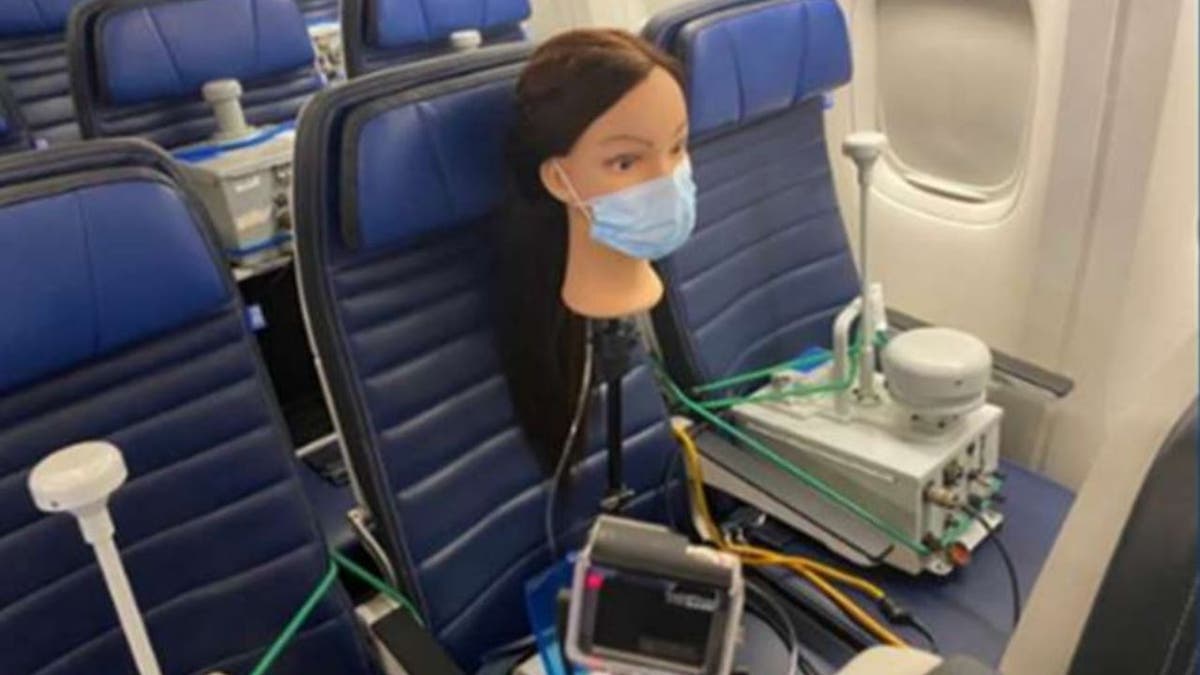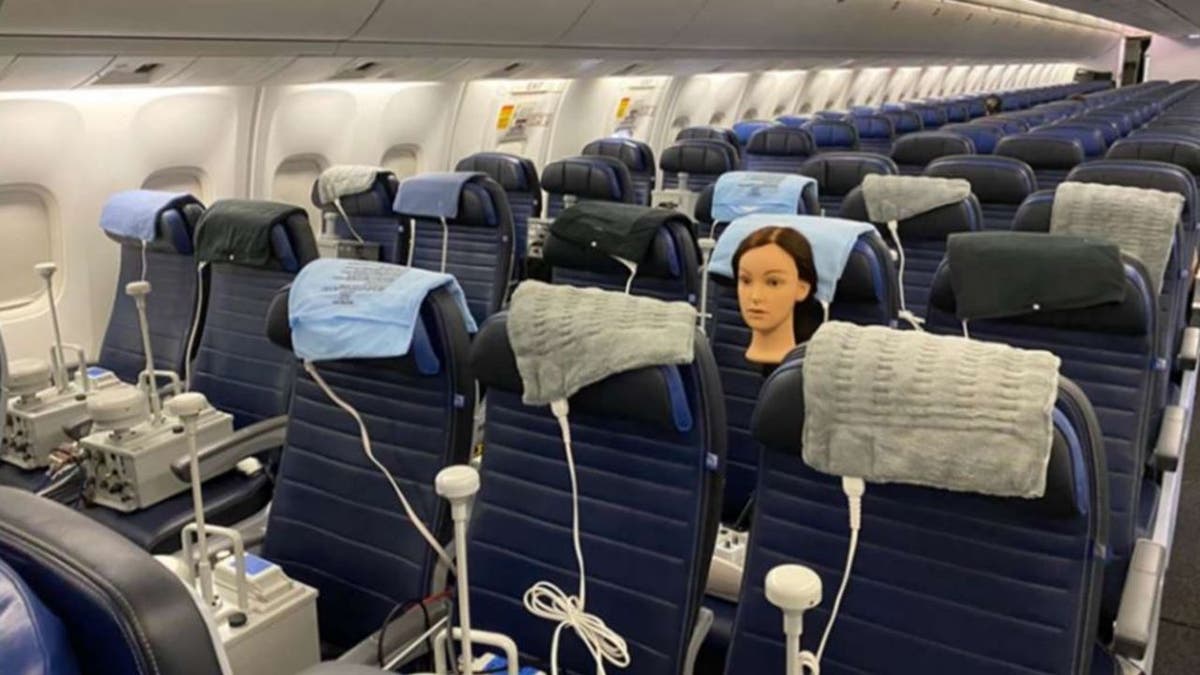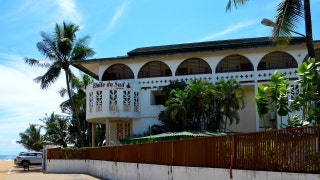Fox News Flash top headlines for October 15
Fox News Flash top headlines are here. Check out what's clicking on Foxnews.com.
Flying amid the coronavirus pandemic might be safer than you thought – if everyone wears a mask.
A new Department of Defense study, conducted with United Airlines, found that the risk of COVID-19 exposure is “extremely unlikely,” even on a 12-hour flight.
Researchers conducted hundreds of tests aboard some of United’s Boeing 777 and 767 aircraft, both in flight and on the ground. They released tracer aerosols from a mannequin equivalent to thousands of coughs and traced how they moved through the cabin. They tested with both the mannequin wearing a mask and not wearing a mask.

(United States Transportation Command)
TSA SCREENS 984K PASSENGERS SUNDAY, HIGHEST NUMBER SINCE APRIL
“The results are in: Your exposure to COVID-19 is almost non-existent on our flights,” United tweeted about the study.
The air is changed in the jets even more frequently than in a standard hospital operating room, the study found. It takes just six minutes for 99.99% of particles to be filtered out of the cabin.
ANOTHER JETPACK REPORTED FLYING NEAR LOS ANGELES AIRPORT
Airlines have taken a big hit as the coronavirus pandemic caused travelers to cancel, postpone or not book flights. As of last week, domestic air travel was still down 62% and international air travel was down 79% compared to a year ago, according to industry group Airlines for America.
Even on a long flight, the risk of exposure is “minimal,” the study found. The higher risk comes from sitting in the same row as someone with the virus, followed by the rows directly in front and behind them.
The greatest risk may come from talking to a neighboring passenger while eating or drinking without a mask, which the study didn’t specifically test.

(United States Transportation Command)
CLICK HERE TO GET THE FOX NEWS APP
The researchers noted that they only tested with standard three-ply surgical masks, one of the most popular types and the same kind the airline supplies. However, other face coverings like gaiters, cotton masks or masks made of other materials could vary in their effectiveness.
It also may not be easy to ensure everyone will follow airlines’ mask requirements. Reports of disputes over passengers refusing to wear masks have popped up regularly since the summer, and even if a maskless passenger is kicked off a plane, other people could have already been exposed.
CLICK HERE TO SIGN UP FOR OUR LIFESTYLE NEWSLETTER
The study also suggested that it’s beneficial to load passengers in smaller groups and allow space on jetways to maintain social distancing.
United and the other major U.S. airlines are requiring passengers to wear masks aboard their planes. The airlines have also added other safety protocols like increased cleaning and reduced contact with flight attendants.









































